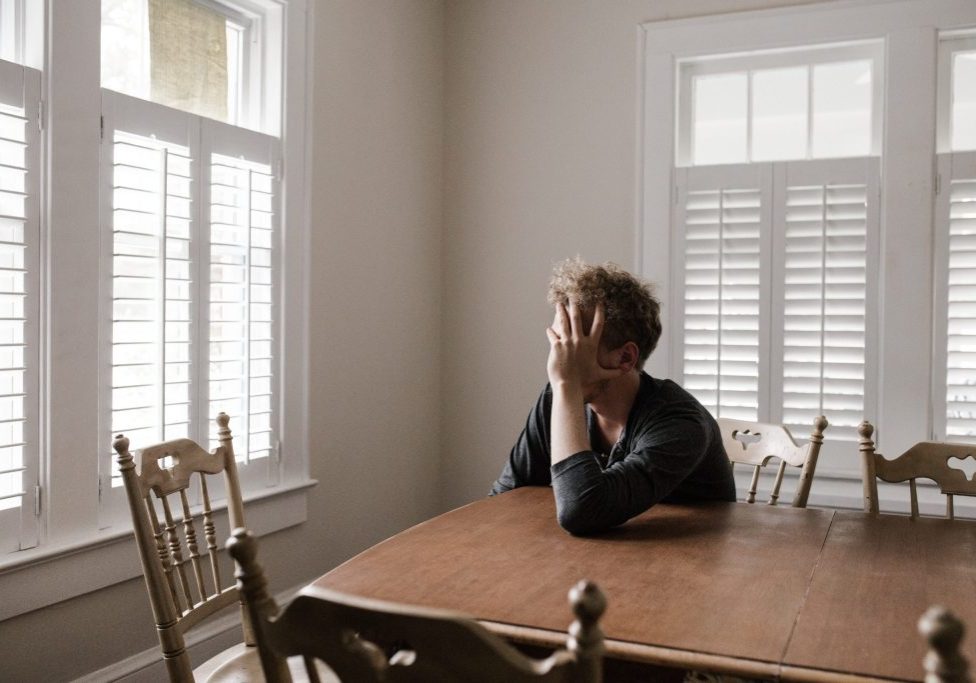BORDERLINE PERSONALITY DISORDER TREATMENT FOR YOUNG ADULTS

WHAT IS BORDERLINE PERSONALITY DISORDER?
Borderline personality disorder (BPD) is a mental disorder marked by instability in relationships, moods, and behavior. It is typically diagnosed in early adulthood, since symptoms in children and teens can be confused with incomplete development and growing personalities. Psych Central reports that somewhere between 1.6 and 5.9 percent of Americans likely suffer from BPD.
But for people with BPD, it’s much more complicated than unstable relationships. Borderline personality disorder is a complex mental health issue. It can manifest itself differently through various subtypes and often disguises itself as another mental illness.
There are also four subtypes of borderline personality disorder, each with its own distinct patterns.
- Discouraged borderline personality disorder
- Impulsive borderline personality disorder
- Petulant borderline
- Self-destructive borderline
Not all people with BPD will fit into one of these four subtypes, while some fit into multiple subtypes. You may fit into one of the subtypes at a certain point in life, while later you might fit into another, or none at all.
BPD SYMPTOMS AND DIAGNOSTIC CRITERIA
The hallmark BPD symptoms are unstable relationships, extreme fear of rejection or abandonment, and intense emotions. However, there are many more symptoms that may indicate a borderline personality disorder.
In order to be diagnosed with borderline personality disorder, you’ll need to have experienced at least five of the following eight symptoms in a chronic and repetitive pattern.
- Extreme fear of rejection and abandonment, both real and imagined
- Stormy personal relationships swinging from idealization to devaluation
- Unstable self-image
- Inappropriate bouts of intense anger
- Chronic feelings of boredom or emptiness
- Emotional instability, including irritability and anxiety
- Paranoid and dissociative thoughts
- Impulsivity leading to reckless and harmful behavior (including self-destructive behaviors)
WHAT CAUSES BPD?
At this point, researchers are not sure about the exact cause for developing a borderline personality disorder. There is some evidence that points to a combination of genetic and environmental factors.
Some of the genetic and biological indicators include:
- A large twin study showed a 42% heritability estimate
- MRIs show that people with BPD may have a smaller or underdeveloped prefrontal cortex. This is the area that primarily helps regulate behavior, emotions, and self-control.
- MRIs show that those with BPD may have an overactive amygdala, causing more intense emotions and reactions.
- Neurotransmitters (responsible for regulating sleep, learning, and mood) may be lower in those struggling with BPD.
Some of the environmental factors include:
- Social and cultural surroundings
- Post-traumatic stress disorder (Particularly childhood neglect, abandonment, sexual trauma, emotional trauma, or physical abuse.)
- Intense or chronic stress
- Unstable family relationships
- Parent or caregiver with a substance abuse problem
- Parent or caregiver with a mental health issue
IS BPD TREATABLE?
While borderline personality disorder might not be “curable”, you can absolutely treat and manage the symptoms of it. There are several forms of therapy that have been effective in treating BPD. If your symptoms are mild and non-interruptive, you can probably address BPD symptoms in outpatient therapy. If you’re like the many young adults whose BPD symptoms have impeded their relationships and their progress in life, you may need to use some of the following treatment options in a more intense treatment setting.
What are treatment options?
Borderline personality disorder treatment almost always includes talk therapy. Within talk therapy, your therapist may use a specific “modality” (or type) of treatment to help you overcome BPD symptoms. You’ll see those listed below. Some medications prescribed by your doctor or psychiatrist might also help you regulate your emotions and control BPD symptoms.
Psychotherapy (talk therapy)
Dialectical behavior therapy, or DBT, was developed as a way to manage the symptoms of borderline personality disorder. BPD teaches the principles of opposites in harmony. This form of therapy teaches skills for mindfulness, emotion regulation, interpersonal effectiveness, distress tolerance, and finding middle ground. The success of dialectical behavior therapy is even greater when your family members are included.
Transference-focused therapy
Like DBT, transference-focused psychotherapy was also developed specifically to help those with borderline personality disorder. With transference-focused therapy (or TFP), you first build a good relationship with your therapist. You’re then able to use this relationship to play out the challenges you experience internally and in other interpersonal relationships. Your therapist then helps you process these challenges so that you’re able to apply solutions outside of therapy.
Schema-focused therapy
A schema is essentially a way of perceiving and responding to information based off of past experiences. Often, we have developed a way of responding to certain experiences that worked for us at one time but no longer serves us in the present. Schema therapy helps you identify the need you are trying to meet with these schemas, and how to meet these needs in a healthier, more effective way.
Mentalization-based therapy
Many people can understand and communicate the emotion they’re feeling at any given time. However, for people with BPD, identifying and understanding emotions while they’re happening can be nearly impossible. Mentalization-based treatment (or MBT) helps to identify current emotions and to determine whether your emotion fits the facts of the situation. When you better understand your emotions, you’ll be able to react accordingly.
STEPPS therapy
“STEPPS” stands for systems training for emotional predictability and problem-solving. It’s a type of therapy that can be helpful in treating BPD when combined with another type of treatment (such as medication management or another type of talk therapy). STEPPS therapy is more formal than other kinds of psychotherapy for borderline personality disorder. It is taught in a 20-week workshop, with ongoing groups for about another year. STEPPS asks participants to monitor behaviors and emotions, and to share skills with family members or others in their support network.
Of these different forms of psychotherapy for BPD treatment, Optimum Performance Institute has chosen to focus on DBT skills. DBT has proven most effective in borderline personality disorder treatment.
Medication management
Not everyone with borderline personality disorder is prescribed medication, but there is some evidence that medications can help you manage BPD symptoms. There are several medication options depending on an individual’s symptoms. The most common medications used to treat BPD are antipsychotic medications and mood stabilizers. It’s also common to be prescribed multiple medications to treat BPD and any co-occurring disorders you’re experiencing. Medication can help you stabilize your mood, lessen impulsivity, and prevent suicidal behavior.
OVERCOME BPD AT THE OPI INTENSIVE PROGRAM
OPI Intensive, a specialized program within the Optimum Performance Institute, is a program for young adults struggling with emotion regulation challenges, such as borderline personality disorder. These individuals often struggle with co-occurring conditions such as mood disorders, eating disorders, post-traumatic stress, chemical dependency, depression, and other challenges.
The OPI Intensive program has two phases:
Phase One
Immersion & Stabilization
- Staff present 24/7 during Immersion Phase
- Live in apartments with 1:2 staff to participant ratio
- Highly structured days 9:00 am - 4:00 pm, Monday through Friday
- Intense DBT skills training so that you’re ready to get out into the real world
- Twice weekly individual therapy
- Twice monthly psychiatric evaluation and medication management
- Group therapy
- Mindfulness through the UCLA MARC institute
- Life skills coaching available 24/7
- Activities to promote mindfulness such as yoga and equine therapy
- Recreation on site and off campus, when appropriate
- Addictions counseling, if applicable
Phase Two
Integration
As you move from the Immersion and Stabilization Phase into Integration, you will continue to participate in all of the Immersion Phase therapeutic activities and receive support as before. To continue preparing you for a joyful and successful life outside of treatment, you will also engage in the following:
- Education counseling
- Career counseling
- Extracurricular counseling
OPI Intensive is the only program specializing in borderline personality disorder to be named BEST IN TREATMENT by Psychology Today. To learn more about our unique young adult BPD treatment program, contact us so we can send you more information or schedule a call together.




